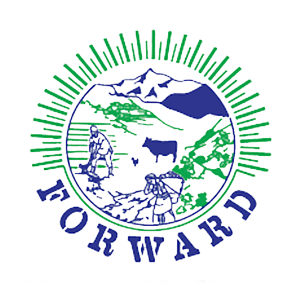Forum for Rural Welfare and Agricultural Reform for Development (FORWARD Nepal) is a non-profit, service-oriented national non-governmental organization established in 1997 to help disadvantaged groups and the rural poor. It is registered at the District Administration Office, Chitwan, and affiliated to the Social Welfare Council, Nepal. The organization aims at reducing poverty of marginalized communities through integrated and sustainable development interventions. FORWARD Nepal’s program activities are focused towards improving food and nutrition security, household incomes and resource conservation to contribute to sustainable livelihoods. It integrates social mobilization, agriculture, livestock, fisheries and aquaculture, farm forestry, biodiversity conservation, and value chain and market development in a multi-stakeholder approach in partnership with government, non-government organizations and private sectors both at national and local levels. The organization has its head office in Chitwan district of Nepal and project offices in various working districts. FORWARD implements projects focusing on target groups such as poor households, women, Dalits, Janajatis, and children. Over the past 28 years, it has implemented 114 projects in 64 districts involving a total of 0.6 million direct beneficiaries.
ision
A society where all women and men at all levels, the economically poor, vulnerable and marginalized have prosperous and dignified lives.
Mission
FORWARD Nepal reaches and empowers vulnerable and marginalized communities for their improved livelihoods through a value chain approach, technology generation and adoption, advocacy and social transformation.
Goal
Improved quality of life for marginalized communities through empowerment, socio-economic transformation, inclusive development and risk reduction.
Objectives
- Enhanced food and nutrition security, and increased income of disadvantaged people.
- Improved technical and managerial capability and resilience of vulnerable communities in biodiversity conservation, climate change adaptation, and disaster risk management.
- Developed and validated agricultural technologies and innovations using participatory research and development approaches.
- Developed physical infrastructure and strengthened local institutions.
- Advocating and conducting capacity building programs to ensure the rights of people with different ability, elders, indigenous/ethnic groups, Dalits, women, and children.





